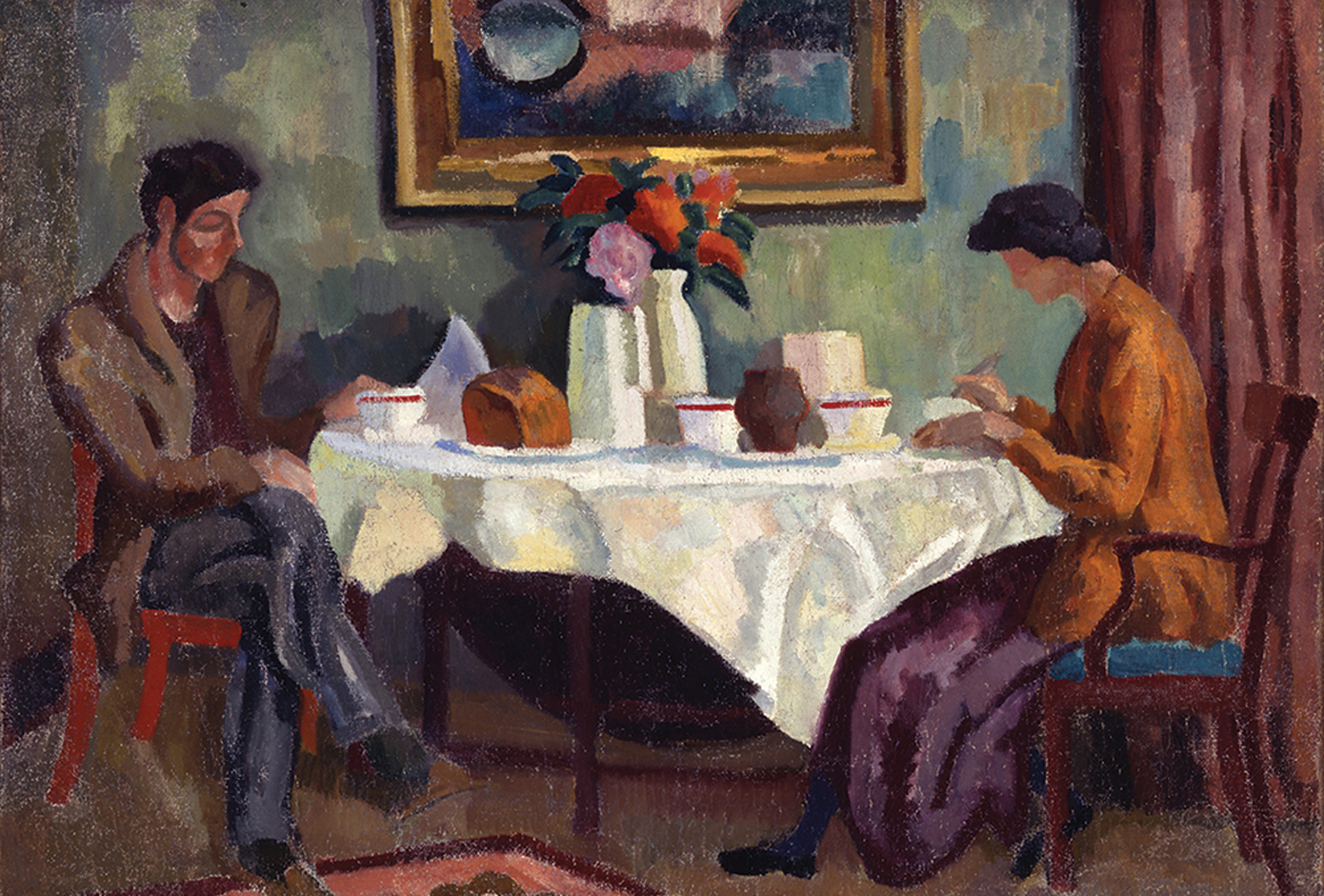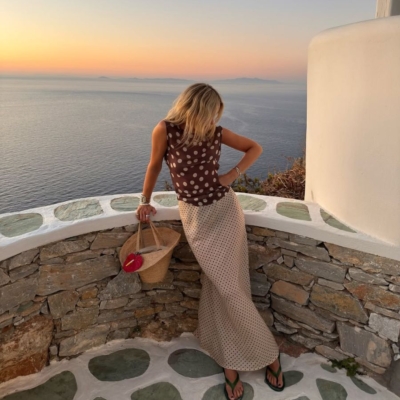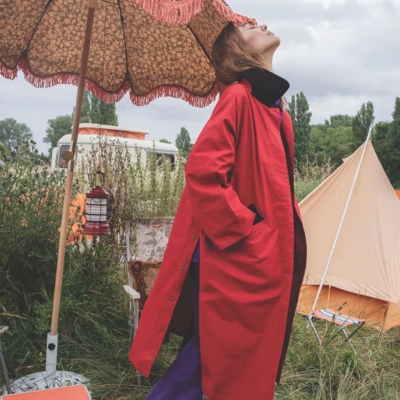In her new book, An Extra Pair of Hands, author Kate Mosse writes about living with and caring for her two elderly parents. The moment her parents moved in to an annexe of her own house was the beginning of a deeper relationship …
My book is a tribute to three extraordinary people – my father, my mother and my mother-in-law – and my own personal reflections about what it means to find oneself, in middle age, as an “extra pair of hands”. It’s about the nature of memory, about celebrating older people and ageing, about gentle heroism, about invisibility, about family and history, about complexity, about trying and failing simultaneously, about the juggling of work deadlines, about unreliability, about exhaustion and never getting a full night’s sleep, about the numbing repetition of everyday tasks, about grief, about patience, compassion and empathy, about guilt and loss, about the right to die with dignity, about reciprocity, about learning to embrace a different pace of life, about our fading selves, about regret, about absence, about partnership, about liberation, about being lucky enough to be in a position to repay a lifetime of caring. But most of all, it’s a story about love.

It is August when my parents finally move into the annexe. The old carpets had gone, Ma had chosen her favourite colours for cupboards, worktops and blinds, it was light and accessible. As the afternoon shadows dance on the lawn, we three girls carry and unpack boxes, arrange crockery in their new kitchen, shuffle pieces of furniture about until they find their perfect spot: the mahogany glass-fronted dresser, filled with commemorative plates and cut-glass decanters; the inlaid beech card table, the old tapestry fire screen, the two-tiered oak bookcase that used to stand at the top of the stairs holding my father’s treasured copy of The Rubaiyat of Omar Khayyam, a fond memento of his army posting to Palestine in 1946; my mother’s library of glossy coffee-table books celebrating the Hollywood golden years and MGM musicals.
My parents had downsized 20 years earlier, when moving from our childhood home, but, even so, there is a great deal to fit in. My sisters and I help to hang up clothes and put shoes away, find a corner by the front door for my father’s collection of walking sticks, stack my mother’s computer and box files on the wide white shelves built for the purpose, abandon rogue paperwork on the dining table, posters and mementoes from my father’s time in the theatre – after being demobbed in 1948, he’d been an actor-manager before deciding to train as a solicitor. My husband drills and hammers and taps, hanging pictures on their new walls and adjusting curtain rails.
Too often, we get distracted by the cumbersome old photograph albums. The rustle of waxed paper, the scent of dust and family history preserved: Ma at 18 with her beloved dog Pip, looking like a young Elizabeth Taylor; a seaside snap of her with her mother and younger brother Christopher, her black curly hair framing her face; my father in 1947 in the heat of the Jordanian desert in his army uniform holding a Bakelite telephone in his right hand like a stage prop; their honeymoon in Guernsey in 1954; my sisters and I having a picnic in the 1960s. Weddings and christenings. A colourful record of their travelling years in their early 60s when retired and free of child-rearing responsibilities. Vivid, bright images full of life.
And some photos we’ve never seen before: a joyous one of Ma’s retirement from the local charity shop, surrounded by well-wishers; another to honour her work for the Citizens Advice Bureau; her final cohort of students at Chichester College; my father’s bowling group; Ma’s astonished expression at her surprise 60th birthday party.
Finally, all the boxes have been brought in from the van. The unpacking is almost done, everything has found a place. The sun is still shining and will keep shining for another fortnight into September.
An Indian summer.
But soon, there’s a hint of copper and gold on the leaves, starlings chattering in the neighbour’s sweet chestnut tree. We’re on the cusp of autumn. Filigree spiders’ webs glisten with dew in the early morning.
It is a great gift to have time to get to know your parents as people. As the selves they were before they were your mother and father.
During those first weeks as next-door neighbours, we settled into a routine. My mother popping in for coffee; my father taking a gentle stroll up and down the garden most afternoons, often followed by the ever-hopeful dog thinking this might be a second walk. Ma kneeling with trowel and gloves, preparing her flowerbeds for winter bedding plants, reds and yellows to keep the grey of the cold months at bay.
All the change-of-address cards have been dispatched. The myriad adjustments made to living somewhere new were accomplished – doctors’ surgery, bank, telephone, my mother’s driving licence, tick, tick, tick and tick. She continued as secretary to the governors at the primary school in Felpham. My father continued to see friends from his Freemason days. Though there’s always been a deal of criticism and uncomfortable talk about Freemasonry, for him it was a place of comradeship and faith and tradition, a community that linked him to his father and his father before him. His Parkinson’s medication was, for the most part, keeping the worst of his symptoms under control. He seemed well. And if there might be a problem, we were right next door. They went every Sunday to my youngest sister for lunch, went on outings with their grandchildren. Their lives had found a new pattern.
Two independent households, but living side by side and, notwithstanding the usual niggles in any cheek-by-jowl family, we rubbed along happily enough. Three generations living together – it seemed to work.
And there seemed to be more time to talk. Not the snatched “how are you?” on the phone or a quick cup of tea in the blue hour of the fading afternoon, but to talk properly. Time enough for a glass of wine when the sun was over the yard arm. All carers know the pressure when you have to leave. The sense that, however long you stay, it will never be quite long enough.
If my father fancied a little company when Ma was out, I’d coax out of him stories about his childhood, though he never much liked talking about himself. He preferred to listen.
He was the youngest child of the reverend Charles Herbert Mosse and Beatrice (Betty) Elizabeth Mosse, née Watson. They’d married at Streatham Hill in September 1918, when Granddad was home on leave from his position as an army chaplain. After the war, he continued his ministry, first in London and then in Horsham, West Sussex. It was, as my father put it, a happy and uneventful childhood until he was six.
Every summer, the family decamped to Newlands Valley in the Lake district. They drank unpasteurised milk bought directly from a local farm and, in those days, herds were not routinely tested. One morning, he complained to his mother about having a headache. She took his temperature and, though very much of the stiff-upper-lip generation, was alarmed. Granny sent his older sister Margie to fetch the doctor from further down the valley. No car, no telephone, no time to borrow the farmer’s horse-and-trap, just a worried young girl running as fast as she could to get help. The diagnosis was pulmonary TB.
At this point in the story, my father would smile. “So I was sent to bed,” he’d say, “and there I stayed for a year …” Nothing could be done to accelerate his recovery. Just rest and, above all, fresh air. So, in 1931, my grandfather left Horsham for the south coast to become the first vicar of the new parish of Aldwick. And rather than going back to school with his older brother, my father remained at home in the vicarage with his mother and sister for company, confined first to bed, then to a bath chair, then gradually learning to walk again. One of the lucky ones, he recovered.
It was in that same whitewashed house in the Lake District in 1939 that the family sat silent, around the wireless at eleven o’clock on September 3, to hear the prime minister, Neville Chamberlain, announce that Great Britain was now at war with Germany.
Although Ma was always dashing about, she had her stories too. Born Barbara Towlson, in south-east London, she was an outstanding student at school – I have inherited some of her old subject reports. The war interrupted her education, as it did for so many children. She endured an unhappy evacuation to Wales with her mother and little brother, then a happier one in Yorkshire. When they finally came back to bomb-damaged London, she had to give up her hopes of a place at university in order to take a job and contribute to the family finances. Instead of dreaming spires and lecture halls, she trained as a shorthand typist and achieved crazy fast speeds. She was snapped up by a legal firm in central London, where she met a former captain in the Welsh Guards, who was now training to be a solicitor after a few years in the theatre. “Your father,” she’d add, in case of doubt, and we’d giggle.
Ma never talked as if she felt she had missed out, or with regret about opportunities she hadn’t been able to take. But despite everything she achieved in her life, I know she would have triumphed at university and they would have been lucky to have her.
It is a great gift to have time to get to know your parents as people. As the selves they were before they were your mother and father.
An Extra Pair of Hands by Kate Mosse, published by Allen & Unwin, is out now.
Main featured image: “THE BREAKFAST TABLE”, BY ROGER FRY, 1918
LOVETHEGLOSS.IE?
Sign up to our MAILING LIST now for a roundup of the latest fashion, beauty, interiors and entertaining news from THE GLOSS MAGAZINE’s daily dispatches.











